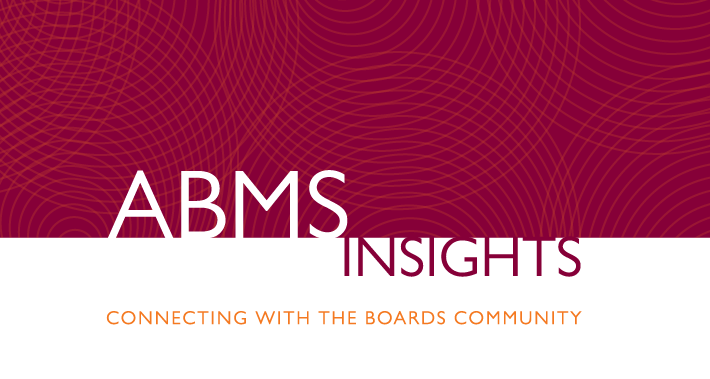
American Board of Medical Specialties Portfolio Program (ABMS Portfolio Program™) Sponsors are engaging in national collaboratives with health care systems and other stakeholders impacting patient care across the country. By working with these stakeholders, including Specialty Societies, Sponsors are extending the reach of the Portfolio Program beyond their institutions’ walls to improve patient care on a national level. Many of these quality improvement (QI) initiatives provide a framework that can be adapted in other institutions.
Learn how Boston University School of Medicine/Boston Medical Center improved HPV vaccination rates
Boston University School of Medicine/Boston Medical Center sponsored a multi-year national human papillomavirus (HPV) vaccination program teaming up with the American Cancer Society’s Vaccinate Adolescents against Cancer program. A multilevel QI intervention was implemented at 11 federally qualified health center (FQHC) systems located in states with low HPV vaccination rates. The interventions, which were completed in 2017, included provider training, client reminders and recall, provider prompts, standing orders, and provider assessment and feedback. Adolescent vaccination rates in the preintervention period (2016) were compared with the intervention period (2017) among teens who turned 13 during the calendar year. Vaccination series initiation increased, on average, 24 percent (47% to 71%). HPV completion rates increased, on average, 23 percent (25% to 46%). Meningococcal and Tdap vaccination rates increased by 23 percent and 26 percent, respectively (48% to 71% and 49% to 75%). Among clinicians completing postintervention surveys (48 of 52), 90 percent reported making changes to their health care system or direct patient care based on the knowledge they gained. Since 2017, 22 more FQHCs/integrated delivery systems have participated in a modified version of this QI project.
Learn how Nationwide Children’s Hospital improved post-operative pain management in the NICU
The neonatal intensive care unit (NICU) at Nationwide Children’s Hospital (NCH) set out to safely minimize postoperative opioid use in NICU patients. Prior to this project, all postoperative pain was managed in the NCH NICU with systemic analgesics that typically include an anti-inflammatory agent and an opiate. NCH NICU neonatologists collaborated with surgeons and anesthesiologists to implement use of regional analgesia (RA) and nurse-controlled analgesia (NCA), which has been described in the literature as safe and efficacious in infants if used under appropriate conditions. Using QI methodology, a multidisciplinary team determined eligibility criteria, developed an extensive process map, and implemented comprehensive education and a structured process for communicating postoperative pain management plans. As part of the intervention, once a surgical plan is identified, the Pain Team is consulted to identify the mode of postoperative analgesia (RA or NCA). Daily Pain Team rounds provided an opportunity for collaborative co-management. An additional 30 minutes for catheter placement was added into the operating room scheduling but did not affect surgeon time. RA was initiated in June 2018 and NCA in May 2020. In July 2019, NCH began working with 23 Level IV NICUs across the United States and Canada through the Children’s Hospitals Neonatal Consortium collaborative initiative for effective management of postoperative pain. The Consortium conducted monthly webinars and bi-weekly huddles. Cumulative opioid requirements for both NCA and RA were significantly reduced from a baseline of 5 mg/kg IV morphine milligram equivalent (MME) to 1.7 mg/kg IV MME. The median duration of postoperative mechanical ventilation was significantly lower for RA patients at zero hours versus 47 hours pre-intervention.
Learn how the Improving Perinatal Health ECHO Collaborative improved maternal care in New Mexico hospitals and birthing centers
The Improving Perinatal Health (IPH) ECHO, a project led by the New Mexico Perinatal Collaborative (NMPC), is a collaboration between Project ECHO, the Alliance for Innovation on Maternal Health (AIM), and the American College of Obstetrics and Gynecology (a Portfolio Program Sponsor), among other community partners. The IPH ECHO facilitates the implementation of AIM maternal safety bundles in New Mexico hospitals and birthing centers. For this QI initiative launched in October 2016, a new AIM bundle is introduced every 18 to 24 months in the participating facilities. Currently, 26 of New Mexico’s 29 birthing facilities are enrolled in the initiative, including three Indian Health Service facilities that participate in bundle implementation but do not share data. Each AIM bundle is designed to decrease maternal morbidity and mortality and has a manual of best practices, measures developed by AIM, and interventions, the latter of which vary by topic of the AIM bundle and the individual setting. Multidisciplinary teams lead brief didactic presentations based on the bundle components. Each session also includes a case presentation provided by network participants addressing patient care or systems adaptation scenarios that provide opportunities for all participants to engage in discussion-based learning and mentoring. Participants convene in ongoing monthly ECHO-based conferences. In 2019, the NMPC implemented the AIM Obstetric Hemorrhage Bundle, through the IPH ECHO, followed by the Severe Hypertension in Pregnancy Bundle in 2020 coinciding with the emergence of COVID-19. Early indication of improvements related to care provision of obstetric hemorrhage is seen in process measure data, quantitative blood loss, and hemorrhage risk assessment occurring as soon as the second quarter to the fourth quarter in 2019. NMPC kicked off the Caring for Postpartum and Pregnant People with Substance Use Disorder Bundle in August 2021 and will begin collecting data in the first quarter of 2022.
© 2021, American Board of Medical Specialties
